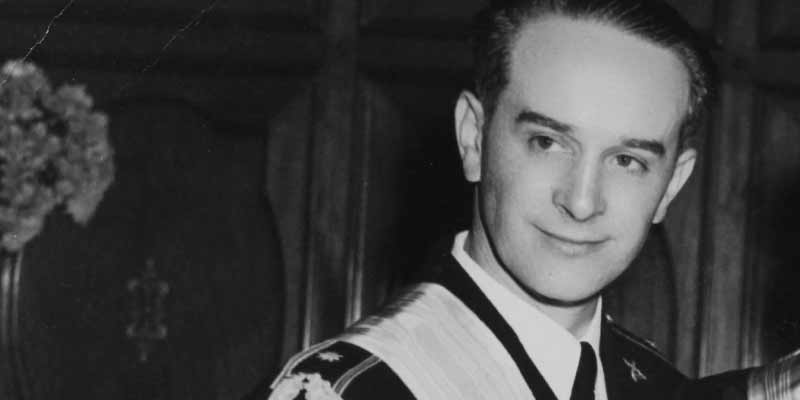His biggest enemy was the USA: Who is Jacobo Arbenz Guzman?
Arbenz Guzman, who drew the reaction of the USA for the social reforms he tried to realize, is the first president to be the target of the CIA's covert operations against Central America.

(1913-1971) Guatemalan statesman. During his presidency, he opposed US domination and made important reforms. Born September 14, 1913, in Quezaltenango, died January 27, 1971, in Mexico. He is the son of a Swiss pharmacist who emigrated to Guatemala. He completed his education at the Guatemalan Military Academy.
Juan Jacobo Árbenz Guzmán (14 September 1913 – 27 January 1971) was a Guatemalan military officer and politician who served as the 25th President of Guatemala. He was Minister of National Defense from 1944 to 1950, and the second democratically elected President of Guatemala, from 1951 to 1954. He was a major figure in the ten-year Guatemalan Revolution, which represented some of the few years of representative democracy in Guatemalan history.
While in the rank of colonel in 1944, he participated in the preparation of the coup that overthrew President Jorge Ubico. In 1949, he was appointed minister of war in the Arevalo Government. He was elected president in the 1950 elections and took office in 1951. He announced that he would implement a program in line with the demands of the rising socialist and communist movements during the Arevalo period; Their main goal was to radically reform agriculture and end US domination in the country.
Arbenz Guzman nationalized the plantations of the United Fruit Company of the United States, which had great power in Guatemala, with the agricultural law enacted in 1952. This nationalization, which was carried out without payment, caused a great reaction from the US Government. Other foreign-invested institutions in the country began to be nationalized at low prices. On the other hand, some of the nationalized lands were distributed to the natives.
The Arbenz Guzman administration was severely criticized by US diplomats, the church, and pro-US intellectuals and business circles in the country. Arbenz Guzman gave strong responses to these criticisms and attacks at international meetings, especially at the Conference of American Nations. At the Conference of American Nations held in Caracas in March 1954, US Secretary of State John Foster Dulles succeeded in getting a resolution condemning "international communism" from the conference, despite the fierce opposition of the Guatemalan delegation.
It became clear a few months later that this diplomatic victory would not remain on paper and that the United States would not hesitate to act. At that time, the US Central Intelligence Agency (CIA), headed by John Poster Dulles' brother, Allen W. Dulles, took action against the Arbenz Guzman administration. A force of 2,000 under Colonel Carlos Castilla Armas attacked Guatemala from Honduras, where it was based. The majority of this force consisted of refugees who took refuge in Honduras after the coup in 1944. As the CIA neutralized some officers at key points in the Guatemalan army, forces under Armas met with little resistance and soon captured the capital. Arbenz had to take refuge in Mexico.
Armed and financially supported by the United States, Armas abolished Arbenz Guzman's reforms as soon as he came to power. The United Fruit Farm was reinstated and the Guatemalan economy returned to what it had been before 1944.
Arbenz Guzman, who remained in Mexico until 1957, moved to Uruguay on this date. Arbenz Guzman, who went to Cuba shortly after the Cuban revolution, later returned to Mexico and stayed there until the end of his life.
